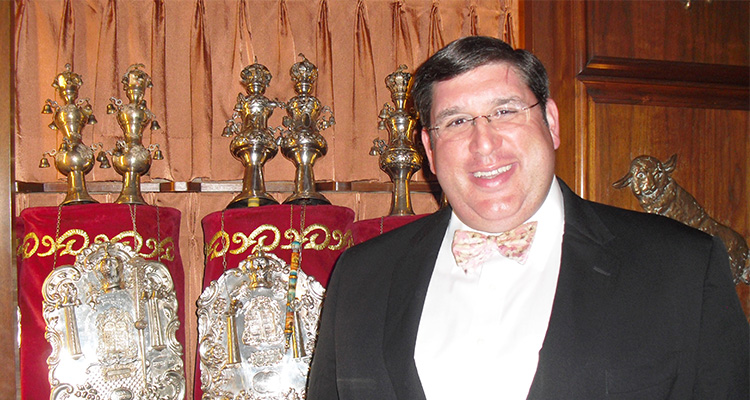There might be easier places to be a Jew. There might be easier places to be a rabbi. But, none of them has quite the feeling of home that Wheeling, W.Va., does, according to Joshua Lief, rabbi of Temple Shalom for the past year.
And, for him, that would literally be home.
His “commute” from house to temple takes him on a diagonal footpath through the very neighborhood in which he grew up — past the very house where his parents, Barbara and Jonathan Lief, still put up a holiday sukkah in the backyard every fall.
“Our children live down the street from their grandparents,” Lief said. They attend Sunday school with their cousin. “That’s a wonderful thing, a real blessing.”
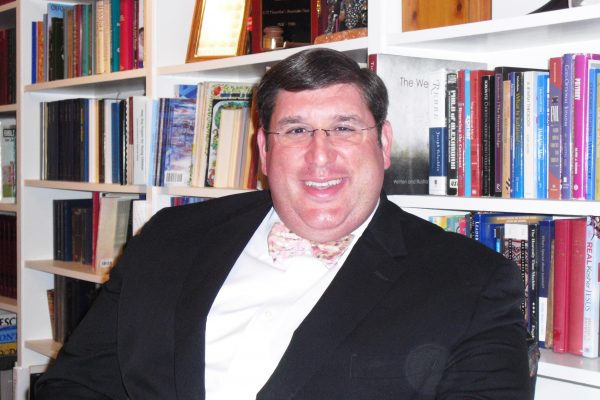
It wasn’t always so. When Lief graduated from Wheeling Park High School and headed to Princeton University to study history, being a hometown rabbi wasn’t even on the radar screen.
Like many of his peers, “I assumed that the only times I would come back to Wheeling would be to visit my parents … And that would be my experience for many years.”
Then came rabbinical school; a posting at a synagogue in Chattanooga, Tenn., that was considered small although it was three times the size of Temple Shalom; and eight years in the senior leadership role at a large temple in Jacksonville, Fla. Add in a wife, Rebecca (whom he met in Chattanooga), and daughters Leah, 8, and Ellie, 4, and things started to change.
“My wife and I realized that we like small better than large,” Lief said of a personal discovery that coincided with changes at his hometown synagogue, which opened downtown in 1849 and re-located to the Woodsdale neighborhood in 1955.
“I’ve been a dues-paying associate member of Temple Shalom for the past 20 years. I’d get all the bulletins, and I knew all the names. … I saw the congregation shrink. … Some was due to moving out, some to death — whole families disappearing.
“It made me sad,” Lief said of how he was feeling before a stroke of what could be considered divine intervention. “Then, I saw an ad for a full-time rabbi for Temple Shalom, and I immediately called my parents, ‘What’s going on?’”
Not long after, Lief was interviewing for the job — inside the same synagogue where his confirmation class photo hangs in a side hallway and with some temple leaders who remembered him from childhood.
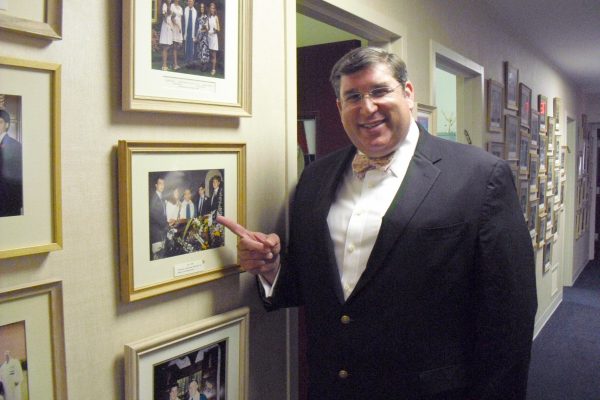
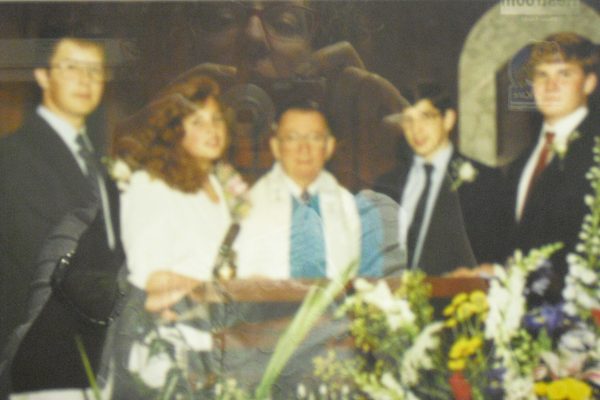
“There’s a concern, obviously, that people knew you when you were a toddler, stuffing cookies into your face at the reception after the service,” said Lief, remembering a question that arose during the interview. “‘Will people take you seriously?’ I said, ‘That’s a burden on me … If I present myself as having actually grown up, then that shouldn’t be a problem. You can go home again, if you’ve changed.’
“I think it helped that I was a good kid,” he added with a booming laugh that seems to reside just beneath his energetic surface. “I didn’t break anybody’s windows.”
It may also help that Lief has a vision for Temple Shalom as not only a center for a “vibrant Jewish experience,” but, as a model for other Jewish communities across the state and nation that are declining in numbers.
“I think that people were content with a slower tempo of activities,” Lief said in reference to a couple of decades of Temple Shalom’s history in which rabbi turnover accompanied congregation decline. “I reject that idea (of contracting because of smallness). You shouldn’t have to go to Pittsburgh to find a vibrant Jewish life.”
Lief backs up his words with action. In addition to an overflowing slate of religious services and activities in the temple, he’s just about everywhere — hosting a 9/11 service for city officials and first responders, helping rededicate the downtown library, helping organize the city’s Martin Luther King Day festivities.
“That’s my job, to be busy.”
He also sees it as part of his job to lure back his own age peers and others who are now far-flung. “Wheeling, as a community, is having a renaissance at the moment,” he said in reference to a boom of residential and business development in the downtown. “The Jewish community is part of that … this exciting renewal.”
That sentiment has led to networking with not only temple families, but city officials and like-minded individuals such as Gordon Gee, president of West Virginia University. Gee is outspoken about fighting the “brain drain” of the state’s most talented graduates to other locations. Lief said working against a parallel spirit drain is also important.
“We have to make the experience of living in West Virginia enticing enough that people who grew up and left might choose to come back and bring with them the knowledge and experiences they’ve gotten elsewhere,” he said of discussions with Gee.
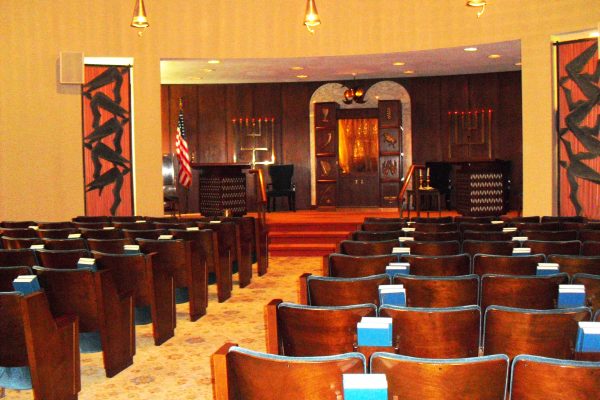
And it seems to be working for Temple Shalom. A handful of families have already returned. Other Jewish families brought to West Virginia by downtown business growth are new congregants. They all meet together, Lief said. “You don’t have to go to the big city, with its costs and its crime and its traffic. … You can have a wonderful quality of life right here in West Virginia.”
Ironically, Lief said the relative smallness of Temple Shalom, which serves about 70 families up and down the Ohio Valley, is part of its charm and workability. He contrasted it to his congregation in Jacksonville, which was supplemented by a Jewish community that included everything from a community center to a retirement home.
“(In Wheeling), we’re the only (Jewish) game in town, so it’s important that we provide for the needs of the whole community.”
An example? While Temple Shalom is technically one of about 900 Reform synagogues in the U.S. — the only one known to have a homegrown rabbi – it also supports members who grew up with a Conservative or Orthodox background. Among many other details of worship, socialization and education, that means that small ceremonial caps (kippahs) are available at the back of the sanctuary even though wearing them is not required by Temple Shalom.
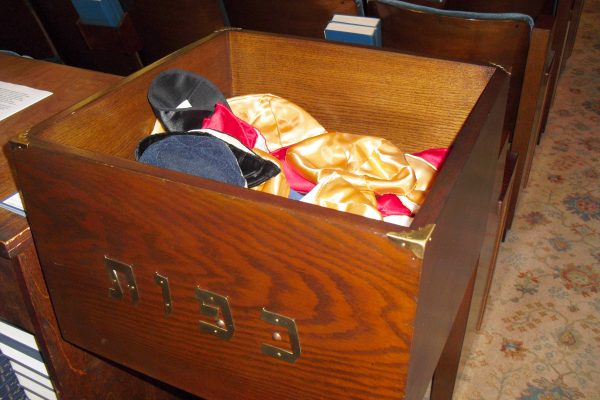
“Being small actually gives us the flexibility to deliver targeted programming,” he added of another contrast. “At the same time, everything we do is an experiment. If people show up or if they don’t show up, we still learn something about ourselves,” he said with a shrug. “We’re small enough to be nimble.”
Lief smiles when he points at his confirmation class photo in the temple hallway, ticking off his peers’ names. He smiles when acknowledging his eldest daughter occasionally shares a backyard shofar tune with neighbors. He smiles when mentioning a new academic honor that has been named for his father, who recently retired from more than 40 years teaching biology at Wheeling Jesuit University.
I’m home, he said, with his biggest smile. “I never stopped caring about it.”
(Photos by Nora Edinger)
• Nora Edinger writes from Wheeling, W.Va., where she is part of a three-generation, two-species household. A long-time journalist, she now writes in a variety of print and e-venues, including her JOY Journal blog at noraedinger.com. Her first work of fiction, a Christian beach read called “Dune Girl,” will be released on Amazon Kindle in June 2018.


